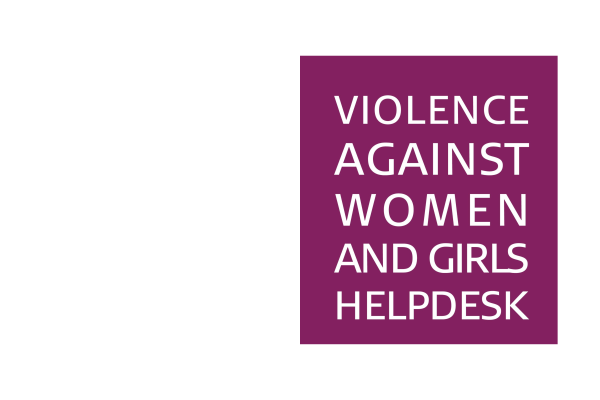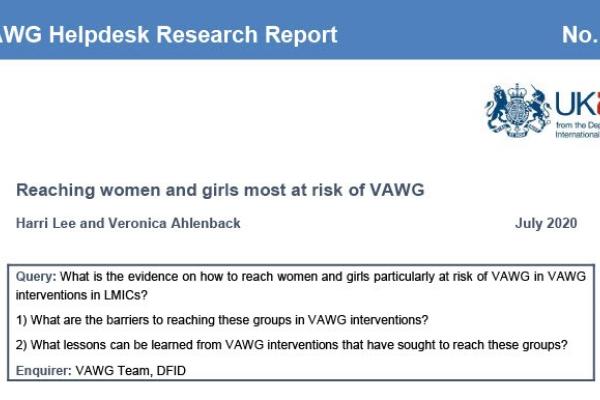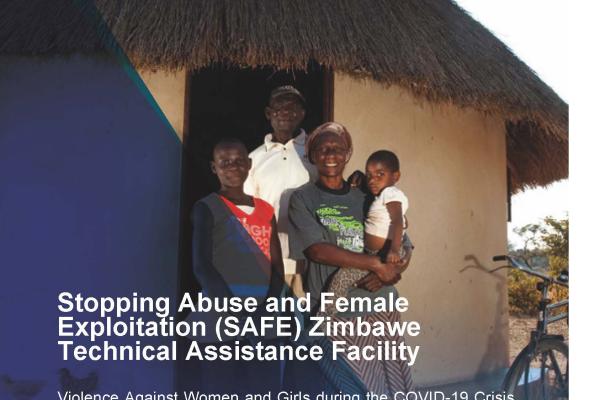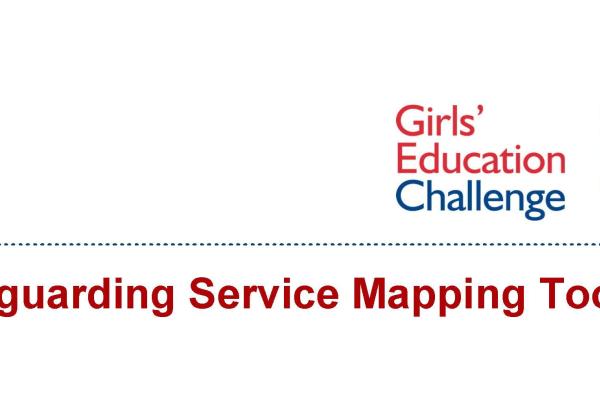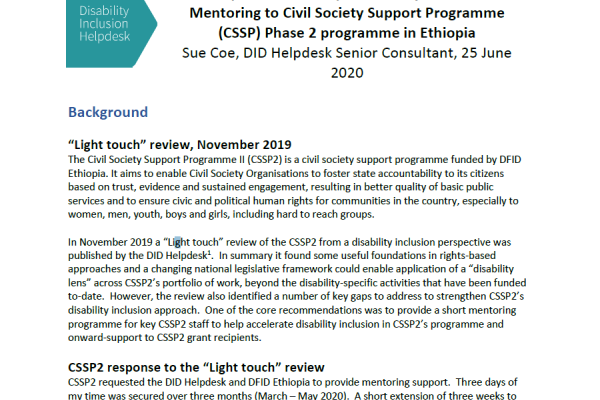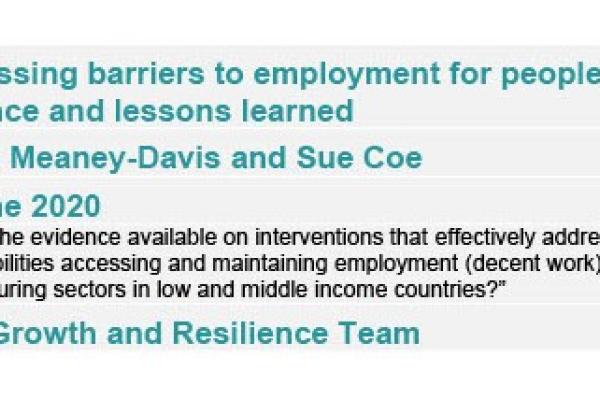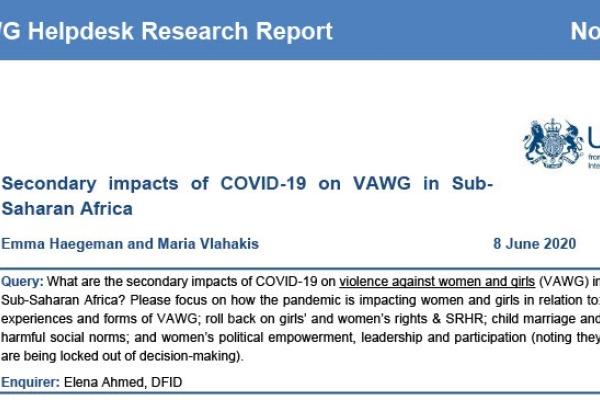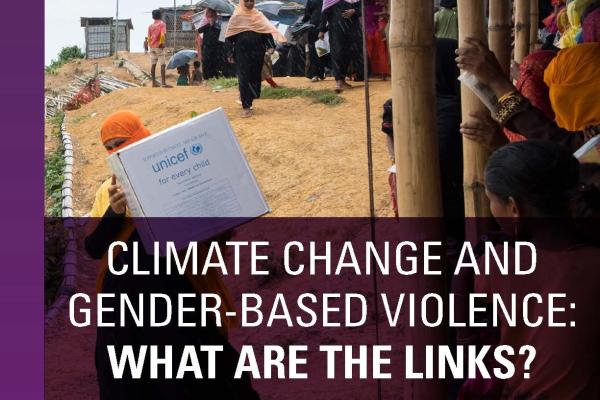Short factsheet on linkages between serious and organised crime (SOC) and violence against women and girls (VAWG).
SDDirect Library
Use the search functions below to explore the full range of publications, tools and research produced by SDDirect.
Displaying 307 - 324 of 502
- Evidence on how to reach women and girls particularly at risk of violence.
- This digest lists the latest evidence on COVID-19 and disability inclusion published between May and July 2020.
- Analysis of practice-based data from the Women's Coalition of Zimbabwe. Report analyses date from March to May 2020, during the Covid-19 Crisis in Zimbabwe.
- A service mapping tool which supports organisations to assess the quality of safeguarding services to be able to develop a trusted referral pathway and offer information to survivors regarding any…
- This report provides an overview of the evidence on GBV screening in antenatal healthcare settings and the conditions that must be present before instituting a routing screening intervention.…
- This resource provides a summary and feedback towards the Mentoring to Civil Society Support Programme (CSSP) Phase 2 programme in Ethiopia.
- In this query, the Disabiltity Inclusive Helpdesk considered the potential financial and economic impacts of COVID-19 on people with disabilities, and the measures that can be taken to limit the…
- This paper provides an overview of findings from evaluations, research, and case studies on programmes that seek to address barriers to employment for people with disabilities in low and middle…
- This learning brief seeks to capture reflections from the field and summarise some of the common challenges related to researching GBV in humanitarian settings, particularly in terms of core ethics.
- Evidence on the secondary impacts of COVID-19 on women and girls' rights, and VAWG.
- This note aims to provide practical support in Spanish to Gender-Based Violence (GBV) practitioners to adapt GBV case management service delivery models quickly and ethically during the COVID-19…
- هذا الموجز التعليمي جزء من سلسلة من المنتجات المعرفية التي ينتجها مكتب مساعدة محور مسؤولية العنف القائم على النوع االجتماعي. يركز الموجز التعليمي على الروابط بين العنف القائم على النوع االجتماعي…
- This annual report summarises the activity of the GBV AoR Helpdesk for the year 2020, including the type of queries the Helpdesk has responded to and the regions it has supported.
- This evidence digest considers the likely impacts and risks of COVID-19 for people with disabilities in humanitarian contexts, and mitigation measures.
- This paper provides an overview of disability inclusion considerations for adaptations to Ghana’s Livelihood Empowerment Against Poverty (LEAP) 2 social protection programme during the COVID-19…
- This learning brief focuses on the links between gender-based violence and climate change. It explains how climate change can contribute to humanitarian emergencies around the world, and how Gender-…
- This paper provides insights into the experiences of refugee and migrant women and girls during the COVID-19 pandemic in Italy, Greece, Bulgaria and Serbia, paying attention to their vulnerability to…
